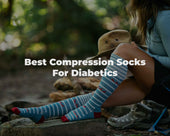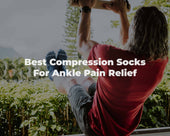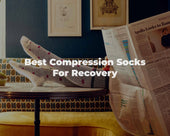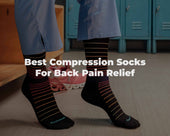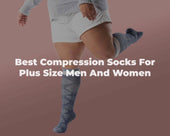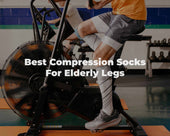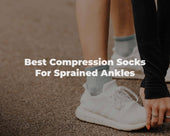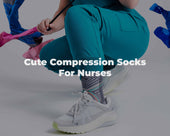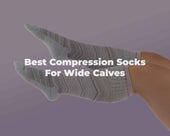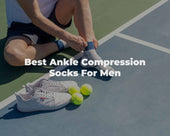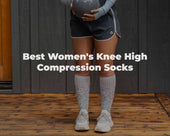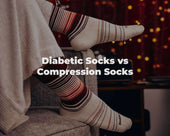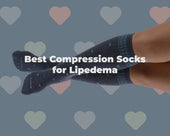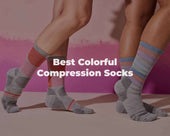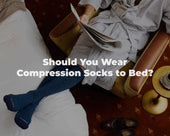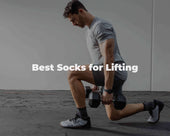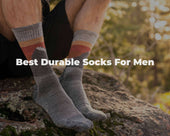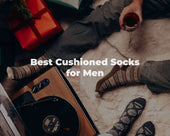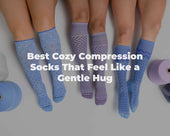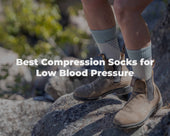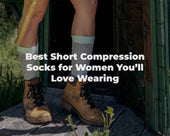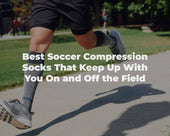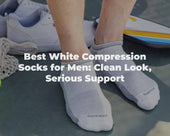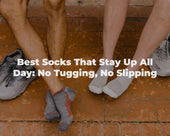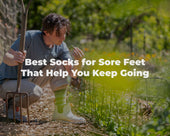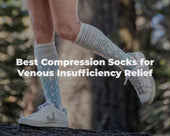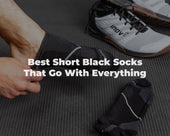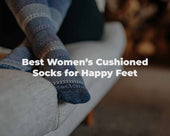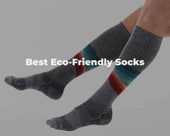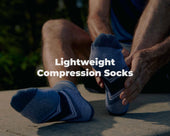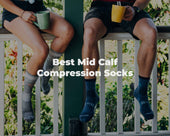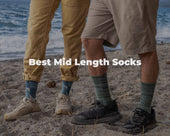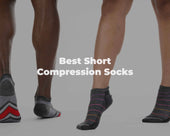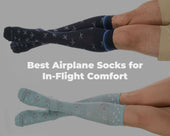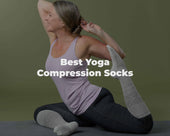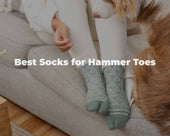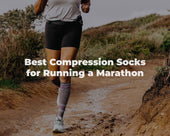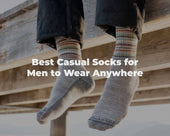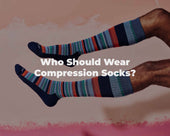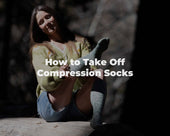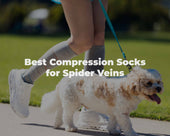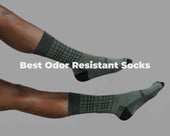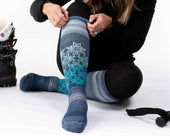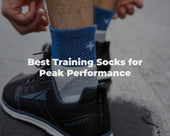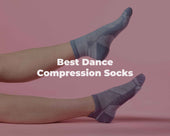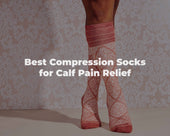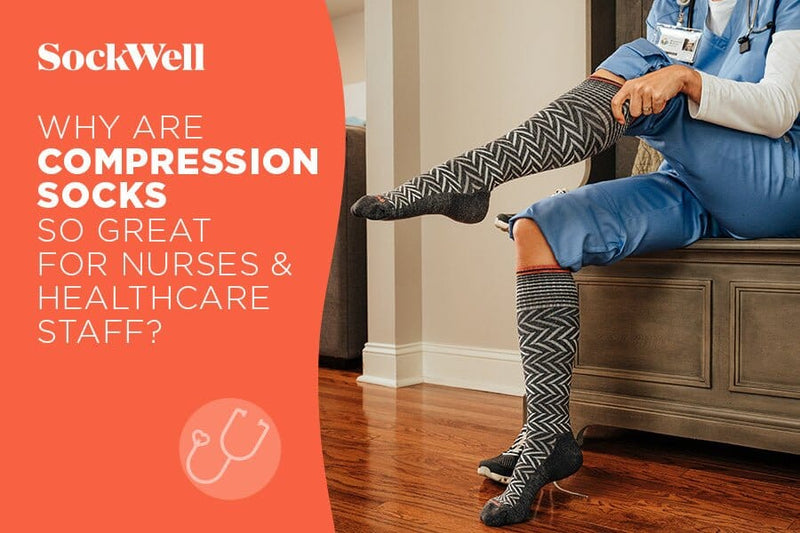
Why Nurses Should Wear Compression Socks
Orthopedic surgeon Richard Alvarez talks the best compression socks for nurses.
It’s hard to believe that compression socks were once viewed by healthcare professionals as a dreaded prescription for the toll on their legs caused by years of prolonged sitting or standing. Seemingly no one wanted to squeeze their aching feet into compression stockings for nurses, or "nurse socks." Flash-forward to the present, and the benefits of compression socks for nurses have transformed this stodgy wellness item into a trending everyday accessory across the healthcare industry. Fresh, modern designs and attention to technical features like arch support and seamless toe closures have made a full day of wearing compression socks a pleasure, rather than a nagging task.
While nurses carry the critical task of preserving the health and well-being of others, they often forget to prioritize their own. We sat down with Dr. Richard Alvarez, a highly regarded orthopedic surgeon in Chattanooga, Tennessee, to discuss the best nursing compression socks and why they are so effective.
Nurses and healthcare professionals are on their feet for extended periods of time, often for 12-hour shifts. What kind of impact does this have on their feet and legs?
When one awakens in the morning, his or her feet are the smallest they will be all day. As soon as they get on their feet, swelling naturally occurs as it is a long way for blood to flow through the body and back up to the heart. As one gets older, this becomes more prevalent. In some instances, shoes feel tighter, legs feel heavy or tired, and feet can feel achy. If varicose veins are present, symptoms may be more apparent. They will likely worsen with prolonged standing through the years and, unfortunately, as one gets older.
There are a lot of new nurses and healthcare professionals entering the workforce. Why is it important for them to start wearing compression socks at the beginning of their career?
As mentioned above, prolonged periods of standing can cause swelling, varicose veins, fatigue, and discomfort. All of this can lead to discomfort and decreased levels of mental alertness. To prevent this, especially later development of varicose veins, start early with compression socks.
How do compression socks work to reduce fatigue and minimize swelling? Do compression socks actually work for nurses?
Compression socks are made of elastic fibers that are strongest at the feet and ankles, and gradually upward toward the knee. Swelling occurs via blood (in vessels) and/or lymphatic fluid (fluid between cells). Compression socks counteract the effect of lymphatic fluid blood and blood pooling in the lower extremities. The compression socks work in conjunction with foot and leg muscles to push and squeeze lymphatic fluid up the lymphatic system and directs blood up the veins back to the heart and lungs.
There are varying levels of compression socks, ranging from mild to extra firm. At Sockwell, we focus on moderate (15-20 mmHg) and firm (20-30 mmHg). How do you recommend nurses find the compression level that is right for them? What type of compression socks should nurses wear?
The vast majority of young nurses will need light to moderate compression (15-20 mmHg). This level of compression is beneficial for nurses who stand all day, travel on long-haul flights, or generally experience mild swelling.
Those with moderate swelling or varicose veins may want to choose a firmer compression (20-30 mmHg). The next step up, 30-40 mmHg is typically reserved for more severe cases of varicose veins, post stripping and moderate swelling, due to venous stasis or lymphedema.
What else can nurses do to take care of their feet and legs?
Aside from compression socks, it’s important to support your feet and legs with appropriate shoes. Simply wearing compression socks and the right shoes can help solve a lot the discomfort that comes from foot and leg aches. For nurses, we recommend running shoes. Get fitted at your local shoe store to find a quality, appropriate pair best suited for you.
You already know what brand of compression socks is best for your feet, but what are the best socks for nurses?
- Sockwell Compression Socks for Nurses & Healthcare Professionals
- Sockwell Lifestyle Compression
- Sockwell Lifestyle Compression 3-Packs
 Dr. Richard Alvarez grew up in Knoxville, Tennessee. He has served the Chattanooga community since 1987 as an orthopedic foot and ankle specialist. Over the past 25 years, he has built a local and national reputation for being a leader in the field of foot and ankle surgery. He currently serves as the Professor and Chairman of the Department of Orthopedic Surgery for the University of Tennessee College of Medicine in Chattanooga.
Dr. Richard Alvarez grew up in Knoxville, Tennessee. He has served the Chattanooga community since 1987 as an orthopedic foot and ankle specialist. Over the past 25 years, he has built a local and national reputation for being a leader in the field of foot and ankle surgery. He currently serves as the Professor and Chairman of the Department of Orthopedic Surgery for the University of Tennessee College of Medicine in Chattanooga.
Dr. Alvarez continues to take an active role in foot and ankle research and has contributed to over 10 book chapters and more than 30 publications of foot and ankle literature. He strongly believes evidence-based research aids practitioners in making good decisions in the management of various foot and ankle injuries and diseases.
Dr. Alvarez has served as the president of the Orthopedic Foot Club and as a faculty member and instructor for numerous national meetings throughout his career. He has also served as a foot and ankle consultant for the San Francisco 49ers, the New Orleans Saints, and the U.S. Winter Olympic Team.

